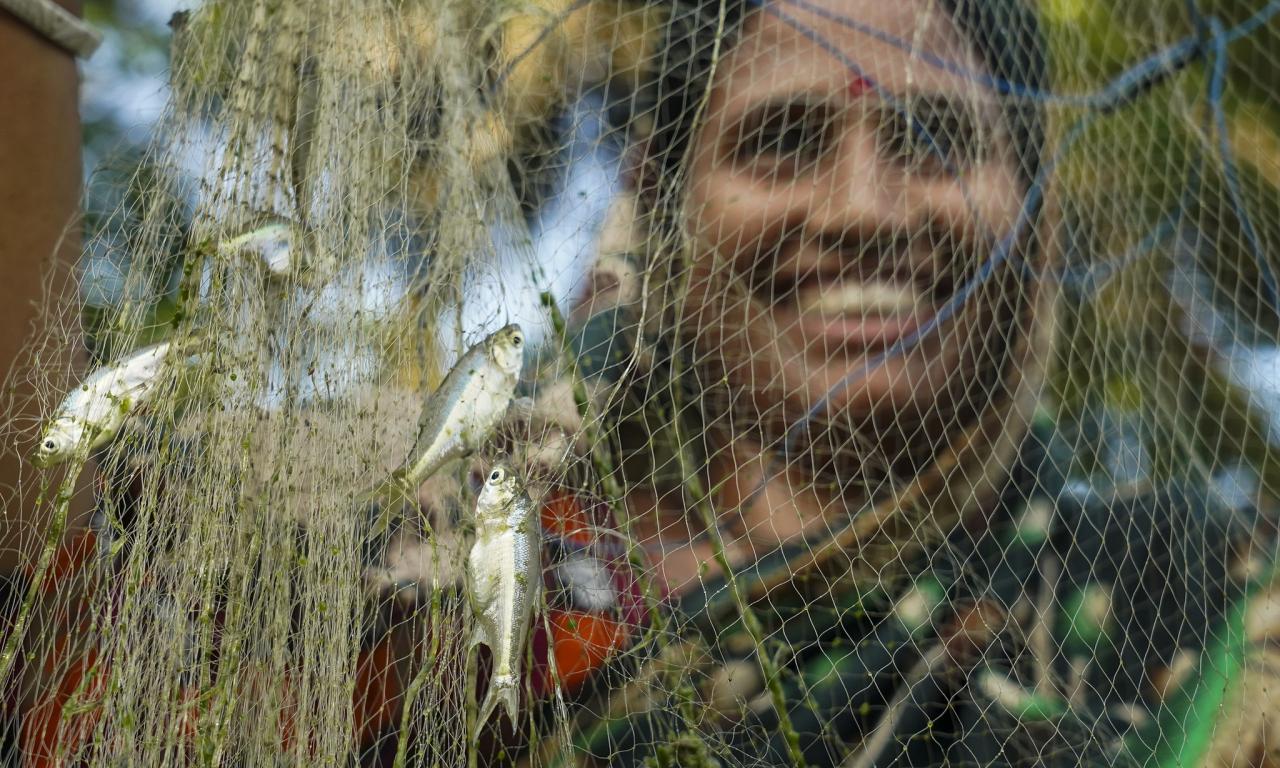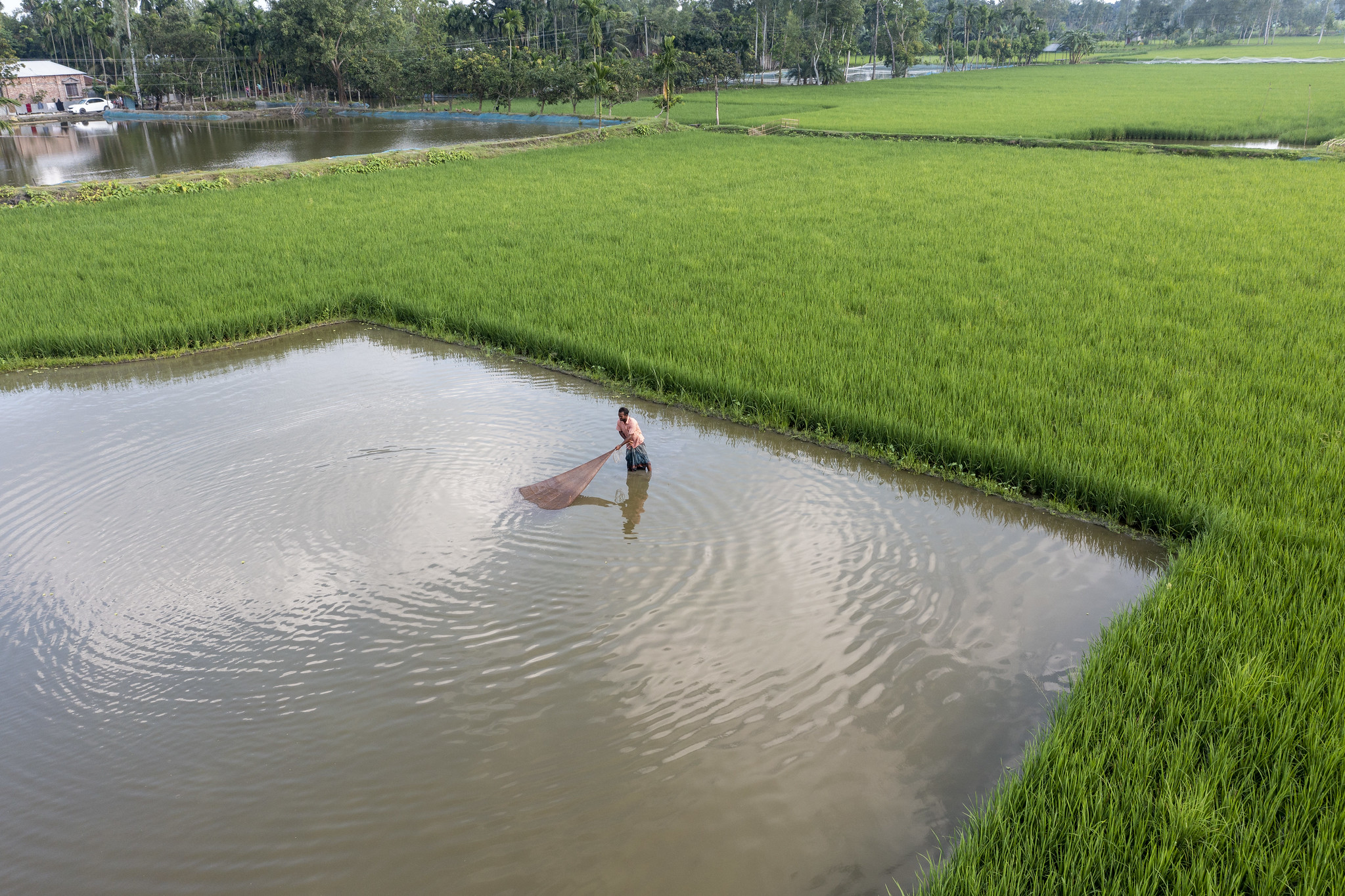
Imagine nurturing fish from spawn to sale, only for a sudden flood or cyclone to wipe out an entire season’s work overnight. For small-scale fish farmers in Bangladesh, this scenario is a harsh reality.
In Bangladesh, climate change is unfolding a crisis that impacts small-scale fish farmers deeply. Unpredictable weather threatens an industry crucial for not just for its contribution to the national GDP but for the sustenance it provides to millions.
Fish and fish-based foods, account for 60% of Bangladeshis total daily animal protein intake, underscoring the sector's significance in ensuring food security and nutrition. Yet, this lifeline is under threat from climate change, with extreme weather events becoming the new normal.
Rising temperatures and erratic rainfall patterns pose substantial risks to fish production, which relies on delicate ecological balances. The consequences are dire: increased fish mortality due to temperature spikes beyond the physiological tolerance of many fish species, and reduced freshwater availability further straining production.
The economic toll is staggering. Between 2011 and 2021, Bangladesh faced estimated losses of around $140 million in its aquaculture sector due to climate-induced challenges. These figures, however, only scratch the surface of the true impact, as many losses go unrecorded or underreported. Behind these numbers lie stories of small-scale fish farmers, whose livelihoods are destroyed by the unpredictable climate.
 |
For these farmers, the loss is not just economic, it's a blow to their way of life. The repercussions extend beyond the immediate financial strain, affecting the nutritional security and well-being of entire communities.
The Role of Climate Information Services
This is where Climate Information Services (CIS) come into play. CIS provides accurate, timely forecasts and actionable advice, enabling fish farmers to make informed decisions. For instance, knowing when a flood is expected can prompt early harvests, while forecasts of heavy rains can guide farmers in reinforcing pond structures to prevent washouts. This critical information helps mitigate the risks posed by climate change, allowing farmers to adapt their practices for better resilience.
The importance of CIS in empowering fish farmers to adapt cannot be overstated. It represents a significant step towards building a sustainable, climate-resilient aquaculture sector. By integrating traditional knowledge with modern forecasting technologies, CIS offers a pragmatic solution that can reduce the vulnerability of small-scale fish farmers to climate shocks.
The plight of Bangladesh's small-scale fish farmers underscores a broader challenge facing humanity: the need for sustainable, climate-resilient food systems. As we move forward, the experiences of these farmers remind us of the urgent need to adapt our practices and policies to safeguard the livelihoods of those at the frontline of climate change.
The resilience of Bangladesh's fish farmers is a reminder that in the fight against climate change, every effort counts, from global initiatives to local actions. At WorldFish, our vision embodies a world of well-nourished individuals, thriving markets, enhanced livelihoods, and restored ecosystems, all underpinned by evidence-based tools, technologies, and practices to sustainably manage aquatic food systems.
The Path Forward for Climate-Resiliant Aquaculture
Realizing this vision calls for a united effort to innovate and scale technologies that deliver impact. We must unite at local, national, and global levels to innovate and expand the reach of technologies that create tangible impacts. By supporting the scaling and adoption of CIS and other adaptive measures, we can help secure a future where aquaculture thrives, sustaining livelihoods and feeding nations.
For those interested in delving deeper into the economic valuation of climate-induced losses to aquaculture and the evaluation of CIS in Bangladesh, I encourage you to read the paper by Shammunul Islam et al., "Economic valuation of climate induced losses to aquaculture for evaluating climate information services in Bangladesh" .
